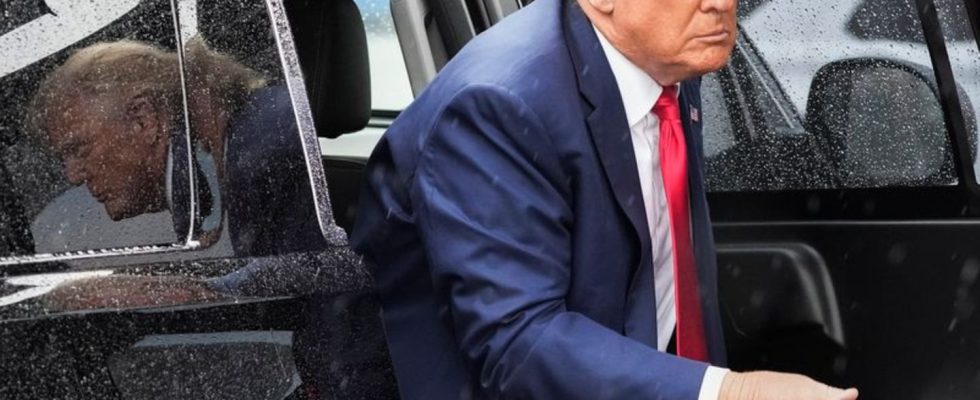USA
Does Trump enjoy protection from prosecution?
Is charged in connection with attempted election fraud: Donald Trump. (archive image) photo
© Alex Brandon/AP/dpa
Trump appears in court in person even though he doesn’t have to. For him, the hearing on the question of his immunity is about nothing less than his political future. For the USA it is about much more.
It is a fundamentally important question for the former president Donald Trump, the election year in the USA and the political future of the entire country: Does the office of president protect against criminal prosecution? An appeals court in the US capital Washington dealt with the clarification – Trump appeared in person at the extraordinary appointment.
It must be decided whether the Republican can be prosecuted at the federal level for his attempts to overturn the results of the 2020 presidential election – or whether he is protected by immunity as an ex-president. The judges expressed skepticism, but their decision was still pending.
It’s all about this
Trump is charged in connection with attempted election fraud. The 77-year-old’s lawyers want the charges dropped. Trump supporters stormed the Capitol in Washington on January 6, 2021. Congress met there to formally confirm Democrat Joe Biden’s victory in the presidential election. Trump had previously incited his supporters and still does not accept his defeat. As a result of the riots, five people died.
Last but not least, the decision on protection from criminal prosecution has immense importance for future presidents. If they really enjoy immunity, they could commit crimes in office without having to fear consequences.
This is what Trump’s lawyers argue
Trump and his team claim that the Republican’s actions after the 2020 presidential election were part of his official duties as president – including statements about elections. Trump’s lawyers also said in court that it is only possible to prosecute a president if he has previously been convicted in an impeachment trial. That is not the case with Trump.
A few weeks after the storming of the Capitol, the US Senate acquitted Trump of responsibility in an impeachment trial because the majority of his Republicans supported him. It is a political process whose outcome also depends on political majorities. The Trump team’s argument therefore appears questionable, and the appeals court also expressed skepticism during the approximately 75-minute hearing. And: Even Republicans said at the time that it was up to the judiciary and not Congress to hold Trump accountable.
That’s what the public prosecutor says
Special Counsel Jack Smith’s team called on the court to reject the ex-president’s request. “The president has a unique constitutional role, but he is not above the law,” said investigator James Pearce of Smith’s team. The public prosecutor’s office also pointed out that unlimited criminal immunity for a president would open the door to criminal acts of all kinds. According to this logic, a president could, for example, kill political opponents without being prosecuted.
A few weeks ago, the judge responsible in the case had already rejected a corresponding application and made it clear that overturning an election result was not one of the official duties of a president.
The appeals court also now indicated that it would not follow the arguments of Trump’s lawyers. “I think it’s paradoxical to say that his constitutional duty to ensure that the laws are faithfully carried out allows him to violate the criminal law,” CNN quoted a judge as saying.
The question is likely to end up before the Supreme Court
No matter how the appeals court decides, the case is likely to end up before the US Supreme Court anyway because of its immense importance. It would be the first time that the Supreme Court has addressed the question of whether ex-presidents enjoy immunity from prosecution at the federal level. This is also because never before in the history of the United States has a former US president been charged with criminal offenses.

